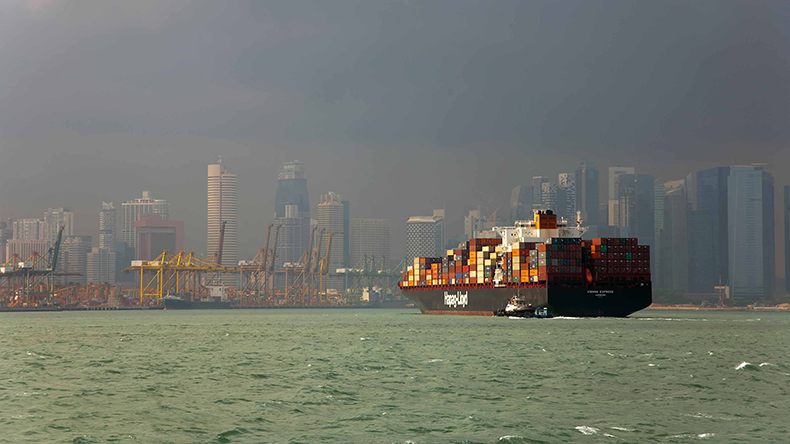



The Global Centre for Maritime Decarbonisation has $155m in funding to support the testing and deployment of green technologies and fuels

A PILOT project to provide transparency and traceability of green fuels in shipping is to be launched in Singapore.
The Global Centre for Maritime Decarbonisation is working on a route-based drop-in fuels pilot project to support green corridors framework.
The pilot project, expected to be rolled out next month, aims to provide transparency and traceability of green fuels in the form of quality, quantity and abatement assurance across the supply chain, chief executive Professor Lynn Loo told Lloyd’s List.
When completed, the pilot, which will involve 13 vessels and three ports, aims to justify the premium the green fuels currently command, she said.
“If we’re talking about green fuels, none is currently available at scale,” Prof Loo told a panel discussion on sustainable shipping at the Ecosperity Conference. “In order to start decarbonising, you’re going to blend the greenfields with the greyfields.
“Green fields currently command green premium, and talking with stakeholders across the board, we realise the key is in the supply chain — how to ensure you have quality, quantity, and abatement potential assurance.”
The pilot hopes to aggregate demand at the port side, and to build infrastructure along the supply chain at the port side, she said, adding: “We are going beyond single individual pilot, to think of route-based pilot, involving port peers.”
Through its projects, GMCD aims to recognise gaps in a move to decarbonisse the sector.
“With our ammonia bunkering safety study, we want to make sure it’s a no-regret move.
“We can iron out the safety guidelines in the meantime before ammonia becomes at scale. And by the time ammonia becomes at scale, we are ready to go.”
The centre’s ammonia bunkering safety study was conducted by a DNV-led consortium, with Surbana Jurong and the Singapore Maritime Academy as partners.
The Singapore-based Global Centre for Maritime Decarbonisation was set up last year with funding from the Maritime & Port Authority of Singapore and six founding partners — BHP, BW, DNV Foundation, Eastern Pacific Shipping, Ocean Network Express and SembCorp Marine.
Its mission is to help the maritime industry reduce its carbon emissions as quickly as possible by shaping standards, deploying solutions, financing projects and fostering collaboration across sectors.
At present, it has $155m in funding to support the testing and deployment of green technologies and fuels.
In the past month, it added three industry partners — the International Bunker Industry Association, the International Windship Association and Kpler. BP, Chevron and the International Chamber of Shipping were signed up in March.